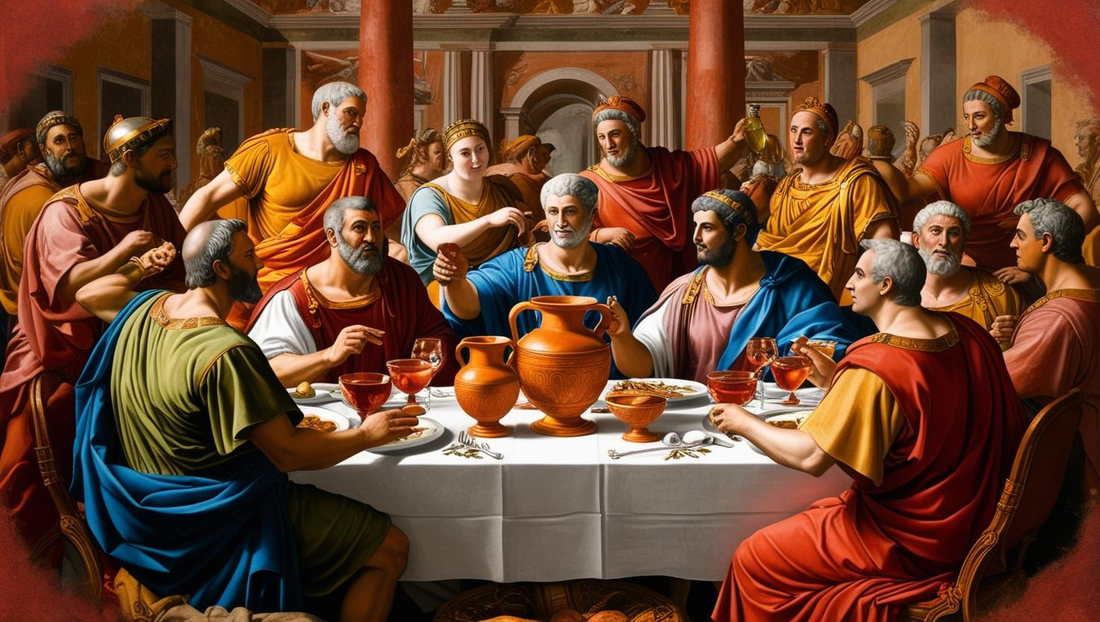
Wine and the Roman Empire
Share
Wine occupied a central place in Roman culture and society, both religiously and socially. As heirs to the Greeks, the Romans developed a true wine civilization, shaping its uses and production throughout their empire.
A DIVINE AND CULTURAL BEVERAGE
Dionysus, the Greek god of wine, was adopted by the Romans under the name Bacchus. His cult, despite attempts to ban it by the emperors, spread among the lower classes, women, and slaves. With the rise of Christianity, wine retained its symbolic importance, becoming a central element of the Eucharist, thus ensuring its continued existence even after the fall of the Empire.
Roman banquets, whether grand celebrations or everyday meals, systematically included wine. Unlike the Greeks, who separated its consumption from meals, the Romans accompanied it with food, from the first to the last course. However, the wine was always diluted with water, as drinking pure wine was considered a barbaric practice, unworthy of a Roman citizen.
A SOCIAL MARKER AND A VARIETY OF FLAVORS
The Romans drank a lot, between 0.7 and 1 liter per day according to some estimates, due to its antiseptic properties, which helped disinfect often unsanitary water. However, drunkenness was frowned upon and considered a vice.
Roman wines were very varied. They could be white, red, or amber, aged or young, and often flavored with honey, herbs, or spices. The best vintages came from certain renowned regions such as Campania. Falerna wine was particularly prized, and certain vintages, such as that of Opimius (121 BC), remained famous for several centuries. However, the quality of the wines was very uneven: the elites tasted refined wines while slaves and soldiers made do with more rustic drinks such as "posca," a mixture of vinegar and water.
UNIQUE PRODUCTION AND PRESERVATION
The Romans innovated in winemaking. They used large terracotta jars for fermenting and storing wine. The lack of modern preservation techniques led to great variability in quality and frequent oxidation, bringing some Roman wines closer to today's yellow wines from the Jura.
Vineyards extended far beyond Italy. Roman wine was exported and consumed throughout the Empire, from Gaul to North Africa. Some vineyard plots used today in France and Spain date from this period.
WINE, BETWEEN MEDICINE AND RELIGION
Wine also played a fundamental role in Roman religious practices. It was offered to the gods during ceremonies and was among the sacred elements of rituals.
In medicine, ancient authors such as Hippocrates and Galen praised its benefits. It was prescribed to treat various ailments, often in conjunction with medicinal plants. Wine was associated with blood, reinforcing its role in medical treatments.
A LEGACY THAT STILL LIVES
The Roman legacy in winemaking continues today. Ancient techniques, such as aging in amphorae, are experiencing a revival. Some natural wines recall the flavors and winemaking practices of ancient times. Thus, far from having disappeared, the art of Roman winemaking continues to inspire our contemporary practices.
